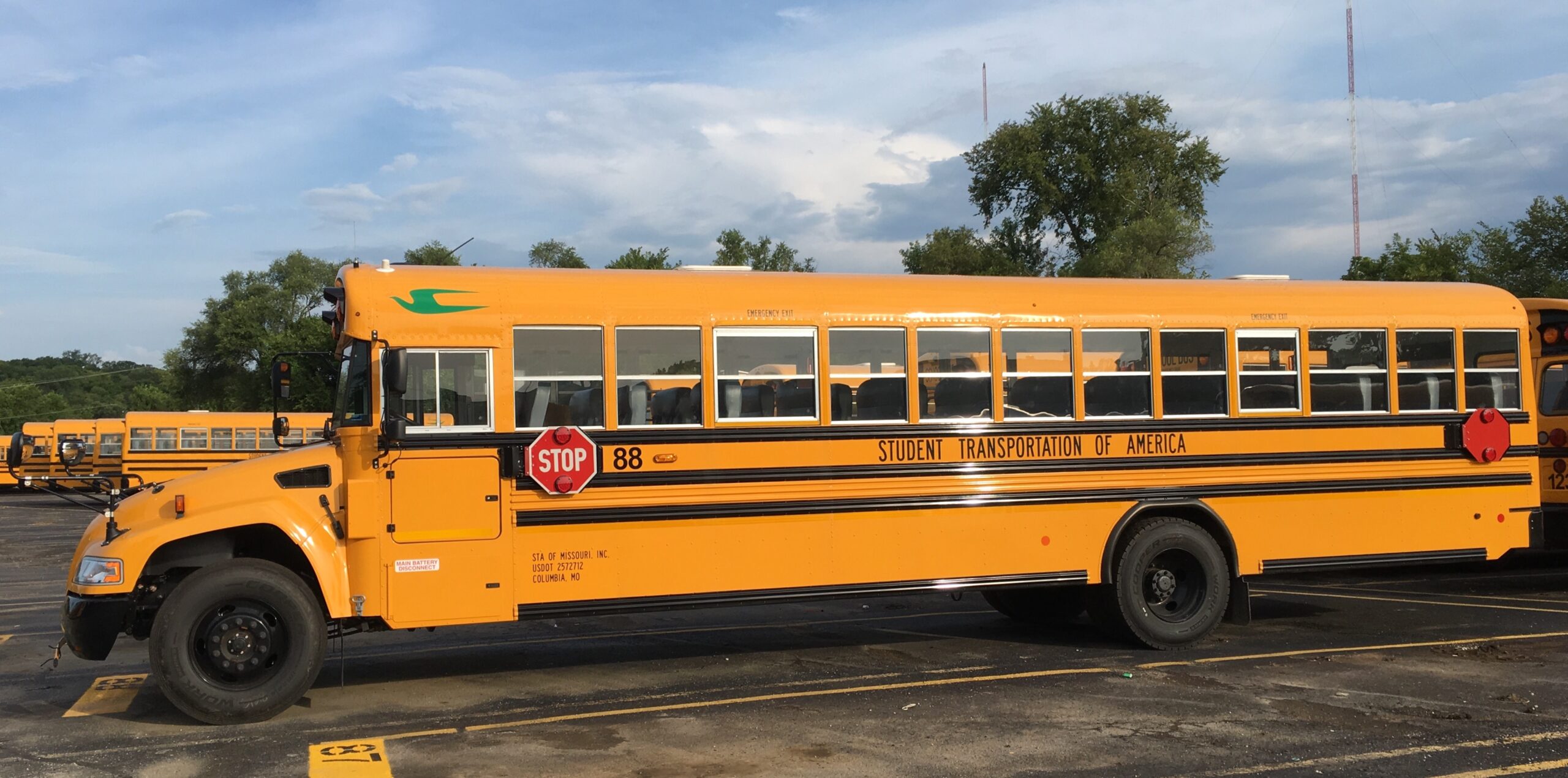
Recognizing an opportunity to reduce emissions and noise, Kansas City Public Schools replaced aging diesel school buses with propane autogas school buses.
By the Numbers
- 171 propane autogas school buses.
- 16,000 annual miles traveled per bus.
- 500,000 gallons of propane autogas per school year.
- 60 percent reduction in fuel cost.
Making the Switch
Kansas City Public Schools transports 9,100 students to 33 schools, two early learning schools and seven special programs via 141 routes each day. Operating in an urban area with narrow, hilly streets, the district needs to focus on school buses with a quiet ride and low emissions, while reducing fuel and maintenance costs.
KCPS held numerous discussions with districts operating propane autogas school buses and with school bus transportation services provider Student Transportation of America. Ultimately, KCPS determined that the quiet ride and low emissions of propane buses were a good fit for their district. KCPS contracted with STA to acquire the Blue Bird Type C buses equipped with ROUSH CleanTech propane fuel systems, joining over 1,000 school districts across the United States that transport students in propane school buses.
“The economic, safety and environmental benefits of propane-powered school buses were major selling points. Those benefits made it a simple decision for us to choose propane because everyone wins,” said Chris Walls, director of transportation for KCPS.
Lower Emissions, Better Health
Walls says KCPS takes “health very seriously. We wanted a school bus solution that was beneficial to the environment and to students.” Missouri students, bus drivers and personnel who in ride propane school buses have significantly reduced exposure to harmful nitrogen oxides (NOx), carbon monoxide, soot and particulate matter. According to the EPA, exposure to NOx exhaust can cause negative health effects in children, including eye, nose, throat and lung irritations, headaches and fatigue. The KCPS propane buses will reduce NOx emissions by over 55,000 pounds and particulate matter by almost 500 pounds each year compared with the diesel buses they replaced.
Propane autogas is a nontoxic, non-carcinogenic and non-corrosive fuel, classified as a non-contaminant by the EPA. The fuel doesn’t emit soot or have strong-smelling fumes, allowing for a more pleasant ride for students and drivers.
According to a 2019 Georgia State University study, diesel school bus fumes can drive down test scores while reducing children’s exposure to school bus emissions can increase academic performance. Lower exposure to NOx can help mitigate negative health effects like asthma, which is the leading cause of school absenteeism.
Quiet Ride, Happy Drivers
KCPS was attracted to the quiet ride of the propane school buses to help drivers hear and communicate better with students, but also to help decrease noise pollution in an urban area with narrow streets. “In addition to reducing emissions, the propane school buses are much quieter,” said Walls. “That means the driver can hear and communicate better with the students on board. Plus, the local neighborhood will no longer have to deal with our former noisy diesel bus warm ups at 4 a.m.”
Buses fueled by propane autogas reduce noise levels by producing sound 11 decibels lower than diesel buses, resulting in about 50 percent less noise.
The district’s drivers have also enjoyed the reliable performance in cold weather. Due to the chemical properties of propane autogas, the propane buses warm up more quickly and have had no cold start issues. KCPS’s propane buses start up in temperatures as low as -40 degrees Fahrenheit.
Funding and Fuel Savings
KCPS began its adoption of propane school buses in 2019 by contracting with Student Transportation of America. STA received a $20,000 rebate from the Missouri Propane Education & Research Council’s Clean Bus Replacement Plan in 2019.
“Domestically produced, clean-burning propane autogas is a perfect fit for Kansas City’s school bus fleet,” said Doug Gallagher, senior vice president of fleet and maintenance for STA, which has invested millions of dollars in more than 2,000 propane buses across the United States, including Missouri. “We convey to school districts that there are economic, safety and environmental benefits to propane-powered school buses.”
STA purchased the buses, and then helped KCPS reduce its operating costs due to lower fuel and maintenance costs.
In an effort to make fueling convenient and to control costs, KCPS elected to build a propane fueling station. A propane station costs less than any other fuel source, including diesel, gasoline, CNG and electric. The district’s station includes an 18,000-gallon, above-ground tank located on school grounds, within the gates of the bus barn. The pumps can refill four buses at one time, making fueling a quick and easy experience.
Working with propane provider Ferrellgas, KCPS locked in an annual per-gallon fuel cost for propane autogas so that price and supply remain consistent, allowing for better budgeting. The school district pays 50 percent less per gallon for propane compared with diesel, for an expected savings of about $500,000 annually. It anticipates another $55,000 savings each year in maintenance costs. KCPS also takes advantage of federal alternative tax credit rebates to further increase fuel savings.
With propane autogas, no exhaust after-treatment or diesel emissions fluids are required like with diesel to meet today’s strict emissions regulations. Propane vehicles also don’t need particulate trap systems, turbochargers and intercoolers. Plus, propane uses less engine oil. For example, an oil change for a Blue Bird Vision Propane school bus uses 7 quarts compared with over 17 quarts for a typical diesel engine.
“While the initial cost has been higher with propane buses, factoring in the savings over time will lead to continued lower costs in future years,” said Walls. “Every dollar saved in transportation goes right back into the classroom for more academic resources for our students.”


